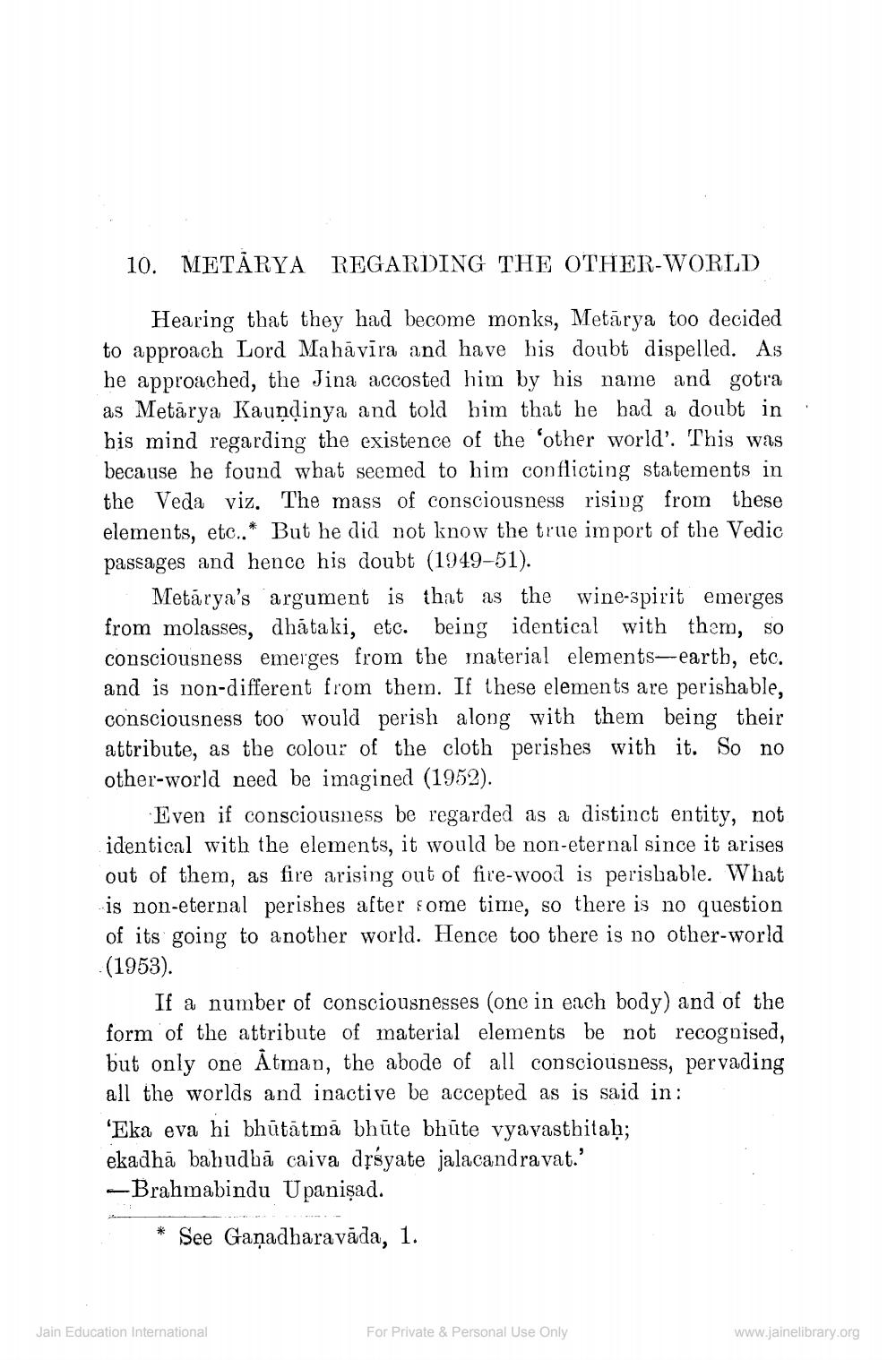________________
10. METĀRYA REGARDING THE OTHER-WORLD
Hearing that they had become monks, Metārya too decided to approach Lord Mahā vira and have his doubt dispelled. As he approached, the Jina accosted him by his name and gotra as Metārya Kaundinya and told him that he had a doubt in his mind regarding the existence of the 'other world'. This was because he found what seemed to him conflicting statements in the Veda viz. The mass of consciousness rising from these elements, etc. * But he did not know the true import of the Vedic passages and hence his doubt (1949-51).
Metārya's argument is that as the wine-spirit emerges from molasses, dhátaki, etc. being identical with them, so consciousness emerges from the material elements-earth, etc. and is non-different from them. If these elements are perishable, consciousness too would perish along with them being their attribute, as the colour of the cloth perishes with it. So no other-world need be imagined (1952).
Even if consciousness be regarded as a distinct entity, not identical with the elements, it would be non-eternal since it arises out of them, as fire arising out of fire-wood is perishable. What is non-eternal perishes after some time, so there is no question of its going to another world. Hence too there is no other-world (1953).
If a number of consciousnesses (one in each body) and of the form of the attribute of material elements be not recognised, but only one Atman, the abode of all consciousness, pervading all the worlds and inactive be accepted as is said in: 'Eka eva hi bhūtātmā bhūte bhūte vyavasthitaḥ; ekadhā bahudbā caiva dřśyate jalacandravat.' --Brahmabindu Upanişad.
* See Gañadharavāda, 1.
Jain Education International
For Private & Personal Use Only
www.jainelibrary.org




